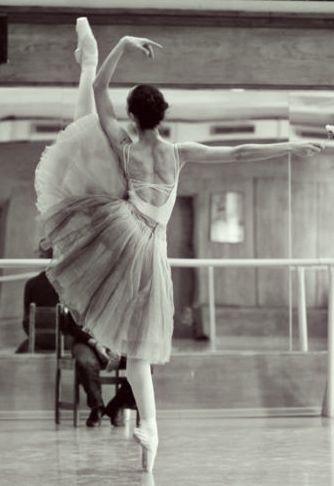"Rachel was to become a very good schoolteacher and then to marry George Paden who would become an official in the Union National Bank of Pittsburgh . . . Great Aunt Racher started a 'Dame's School' for primary education, to which not only [Edith Schaeffer's] father would go, but also some of his brother and sisters, Aunt Rachel's own daughter Marion Paden, and later some of the grandchildren of the family, as well as 'outside children.' In this school Rachel must have given a fantastically good foundation for the children she taught were later to be higest in their classes in university, and still later, leading doctors and missionaries as well as leaders in other professions . . . Aunt Rachel gave her own daughter a good foundation in her Dame's School, and as language was one of her best subjects, it is not surprising that she went on to be extremely good in Arabic, speaking as well as reading the language. Cousin Marion went to Egypt under the United Presbyterian Board, and continued in girl's school teaching for forty years. . . . If you think Rachel was 'downtrodden' because her brilliance was limited to offering a very thorough education to a small number of children whom she gave a foundation that is rare in this day -- then, as grandmother would say, 'You have another think coming.' Certainly there have been things worth fighting for, and limitation have been unfair for women, but it is not all 'black and white.' If there were women for whom life was 'hell' in those days of many children, there are also women for whom life is 'hell' today in their places of 'freedom,' as they walk in and out of marriages with multiple divorces, and as they face untold disappointments and discouragements in offices and careers of a diversity of kinds. I'm not saying all women aren't supposed to have careers; Cousin Marion had a very satisfying and fulfilling career in her forty years of outstanding work in Alexandria, Egypt. But, the diversity of the career that the artwork of raising children and creating a continuity of family holds forth, is something that musn't be forgotten as we look at the The Tapestry of history" (Schaeffer 70-72).
___________
Schaeffer, Edith. The Tapestry: The Life and Times of Francis and Edith Schaeffer. World Books, 1984.
Sunday, December 18, 2016
Friday, December 2, 2016
" 'How canst thou be such a hypocrite,'
said I, even audibly,
'to pretend to be thankful for a condition which,
however thou mayest endeavor to be contented with,
thou wouldest rather pray heartily to be delivered from?' ”
(Defoe 97).
Thank you, Lord, for a job which often directs my heart back to Yourself.
___________
Defoe, Daniel. Robinson Crusoe. Barnes and Nobel Classics, 2003.
Wednesday, November 30, 2016
unpurpose(ful)ly incorrect
For the first time today, I learned that purposefully and purposely are not, in fact, the same word.
. . . And, of course, I did not learn this until I after I (mis)corrected a student's writing on my white board.
So, after reading this helpful guide and discussing the topic with my brother, Joel has determined that
. . . And, of course, I did not learn this until I after I (mis)corrected a student's writing on my white board.
So, after reading this helpful guide and discussing the topic with my brother, Joel has determined that
purposefully is for a purpose
-and-
purposely is with a purpose.
Sunday, November 27, 2016
"for the best improvement of time"
"[In chapter four] of [Pilgrim's Progress] the story has now become fully established, and it is a universal pattern in travel stories from Honer's Odyssey and Spencer's Faire Queene to C.S. Lewis' Naria stories and Tolkein's Lord of the Rings. It consists of a predictable back-and-forth movement between journey along the path and temporary rest in a place, usually a house, palace or castle. The rituals of arrival at the beginning and taking leave at the end encircle the stay at the residence. The main actions are (a) refreshment and renewal for the weary traveler and (b) instruction for the traveler but equally for the reader. The latter feature means that the author's didactic purpose is fully evident in these interspersed interludes" (Ryken 29).
Ryken, Leland. Bunyan's The Pilgrim's Progress. Christian Guides to the Classics,
Crossway, 2014.
Ryken, Leland. Bunyan's The Pilgrim's Progress. Christian Guides to the Classics,
Crossway, 2014.
Saturday, November 26, 2016
Friday, November 25, 2016
unless someone guides me
The Eunuch is so bluntly honest about his need.
" So Philip ran to [the Eunuch] and heard him reading Isaiah
the prophet and asked,
'Do you understand what you are reading?'
'Do you understand what you are reading?'
And he said,
'How can I, unless someone guides me?' "
(Acts 8:30-31).
I am so often afraid to be honest with the leaders in my life about my inadequacies.
There are so many situations in which I should just say, "I don't know," "I've never tried," or "I haven't been keeping up with that." But, I care too much about the impression I leave on others to be bluntly honest about my own need . . .
Thursday, November 24, 2016
Happy Thanksgiving
“Thanksgiving
- giving thanks in everything -
prepares the way that God might show us His fullest salvation in Christ.”
- Ann Voskamp
“The power of finding beauty in the humblest things makes home happy and life lovely.”
- Louisa May Alcott
Monday, October 24, 2016
Thursday, October 20, 2016
"The same heroic plot can yield
both good and bad poems" (Tolkein 17).
Students misunderstand literature when they read Sparknotes.
The structure of the language matters just as much as (if not more than) the structure of the events.
-------------------
Tolkein, J. R. R. The Monsters and the Critics, and Other Essays. Harper Collins, 2007.
Saturday, October 1, 2016
Friday, August 12, 2016
fidelity
I am reading Pilgrim's Progress for the first time this summer.
I read this picture book version many times as a child, but this is my first time encountering the original text as I prepare to teach my students about the text this fall.
In the first few pages, I have already been struck by the intensity of the allegory.
"Now he had not run far from his own door, but his Wife and Children perceiving it, began to cry after him to return; but the man put his fingers in his ears and ran on crying, Life! Life! Eternal Life! So he looked not behind him . . ." (Bunyan 15).
I am currently dating a wonderful gentleman, and we are both looking excitedly towards spending the rest of our lives together.
I want to be a wife and a mother.
These are not bad desires. At least one of them has the very real possibility of coming true in the somewhat near future.
But, these desires have consumed me before and I fear they are beginning to do so again.
Christian ran from his spouse and children.
He ran with his fingers in his ears from the relationships for which I deeply long.
He let nothing, not even beautiful human relationships, stand between him and his relentless pursuit of his Savior.
Oh, how often I let people stand between me and the LORD.
Oh, how often I let my ideas about the future stand between me and the LORD.
That's the possibly greater problem.
I don't even have these relationships yet.
This husband, these children - they don't exist, yet; and already I am already more faithful to them than I should be.
My fidelity to the ideas in my head is far too great.
The more faithful I am to my own head, the less able I am to be present in the reality the LORD has put before me in this exact moment.
"Jesus sums up common-sense carefulness in a disciple as infidelity" (Chambers, commenting on Matthew 6:25).
I am so guilty of common-sense preparation for the future.
Oh, LORD, may my fidelity be always anchored in You and never in my own head.
Oh, LORD, may I run hard toward the Celestial City always.
------------------------------------------------
Bunyan, John. The Pilgrim’s Progress. New York: Barnes and Noble, 2005. Print.
I read this picture book version many times as a child, but this is my first time encountering the original text as I prepare to teach my students about the text this fall.
In the first few pages, I have already been struck by the intensity of the allegory.
"Now he had not run far from his own door, but his Wife and Children perceiving it, began to cry after him to return; but the man put his fingers in his ears and ran on crying, Life! Life! Eternal Life! So he looked not behind him . . ." (Bunyan 15).
I am currently dating a wonderful gentleman, and we are both looking excitedly towards spending the rest of our lives together.
I want to be a wife and a mother.
These are not bad desires. At least one of them has the very real possibility of coming true in the somewhat near future.
But, these desires have consumed me before and I fear they are beginning to do so again.
Christian ran from his spouse and children.
He ran with his fingers in his ears from the relationships for which I deeply long.
He let nothing, not even beautiful human relationships, stand between him and his relentless pursuit of his Savior.
Oh, how often I let people stand between me and the LORD.
Oh, how often I let my ideas about the future stand between me and the LORD.
That's the possibly greater problem.
I don't even have these relationships yet.
This husband, these children - they don't exist, yet; and already I am already more faithful to them than I should be.
My fidelity to the ideas in my head is far too great.
The more faithful I am to my own head, the less able I am to be present in the reality the LORD has put before me in this exact moment.
"Jesus sums up common-sense carefulness in a disciple as infidelity" (Chambers, commenting on Matthew 6:25).
I am so guilty of common-sense preparation for the future.
Oh, LORD, may my fidelity be always anchored in You and never in my own head.
Oh, LORD, may I run hard toward the Celestial City always.
------------------------------------------------
Bunyan, John. The Pilgrim’s Progress. New York: Barnes and Noble, 2005. Print.
Chambers, Oswald. My Utmost For His Highest. Ohio: Barbour Publishing, 1963. Print.
Thursday, August 11, 2016
a letter without postmark
Dear Writers of Vehicle Commercials,

Sincerely,
a performing artist who would like to be considered fully human
Are actors fake people?
I understand what you are trying to communicate, but please choose words that more accurately describe what you are trying to say.
a performing artist who would like to be considered fully human
Saturday, August 6, 2016
Saturday, July 23, 2016
"You made all time; You are before all time; and the 'time,' if such we may call it, when there was no time was not time at all. It is therefore true to say that when You had not made anything, there was no time, because time itself was of Your making. And no time is co-eternal with You, because You never change; whereas, if time never changed it would not be time" (Augustine 263).
Augustine, Aurelius. Confessions. Trans. R. S. Pine-Coffin. London: Penguin Books, 1961. Print.
Augustine, Aurelius. Confessions. Trans. R. S. Pine-Coffin. London: Penguin Books, 1961. Print.
Wednesday, July 13, 2016
listening to literature is good for everyone
Well, these two articles basically sum up how I taught last year.
Three Words Can Save the Drowning First Year Lit Teacher
Stop Assigning Reading Homework
It's really quite relieving to know that someone recommends all of this. And, therefore, maybe, as I prepare for this second year, I don't need to get as far away from doing things this way as I thought. Thank you Lord for timely advice as I sit in the middle of a large stack of books that I know I will not finish reading before September.
Three Words Can Save the Drowning First Year Lit Teacher
Stop Assigning Reading Homework
It's really quite relieving to know that someone recommends all of this. And, therefore, maybe, as I prepare for this second year, I don't need to get as far away from doing things this way as I thought. Thank you Lord for timely advice as I sit in the middle of a large stack of books that I know I will not finish reading before September.
Subscribe to:
Posts (Atom)


